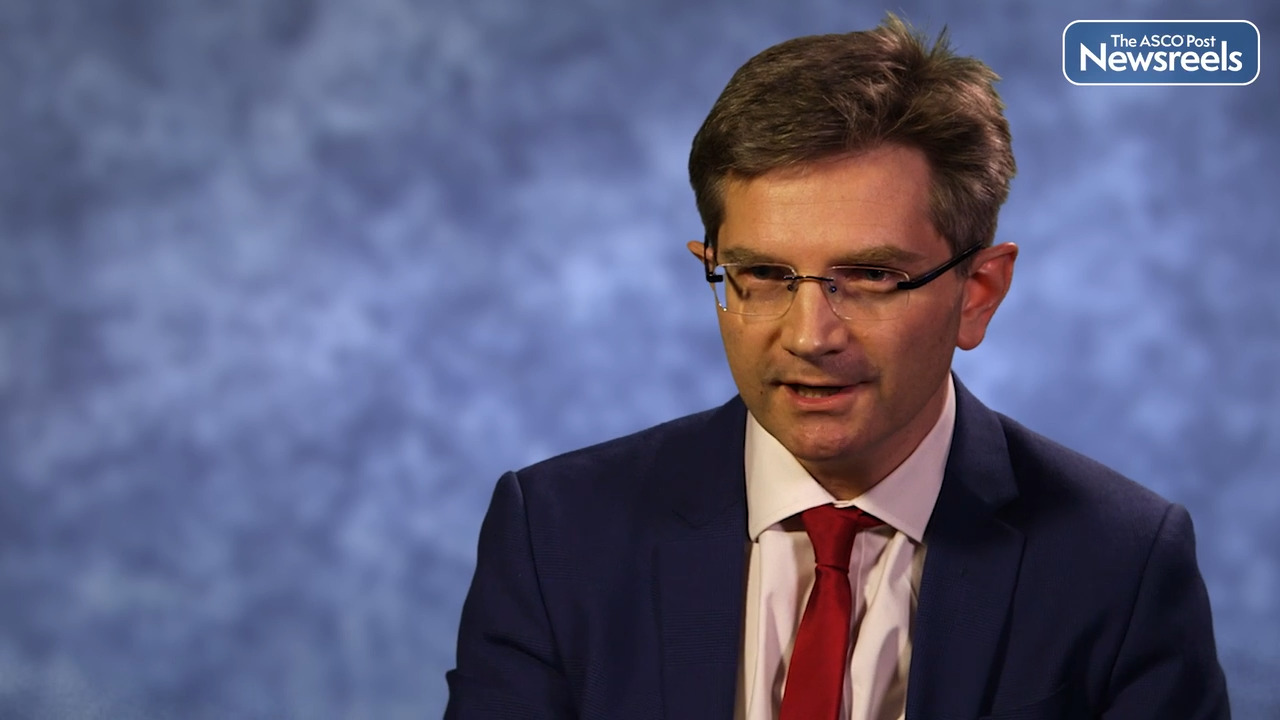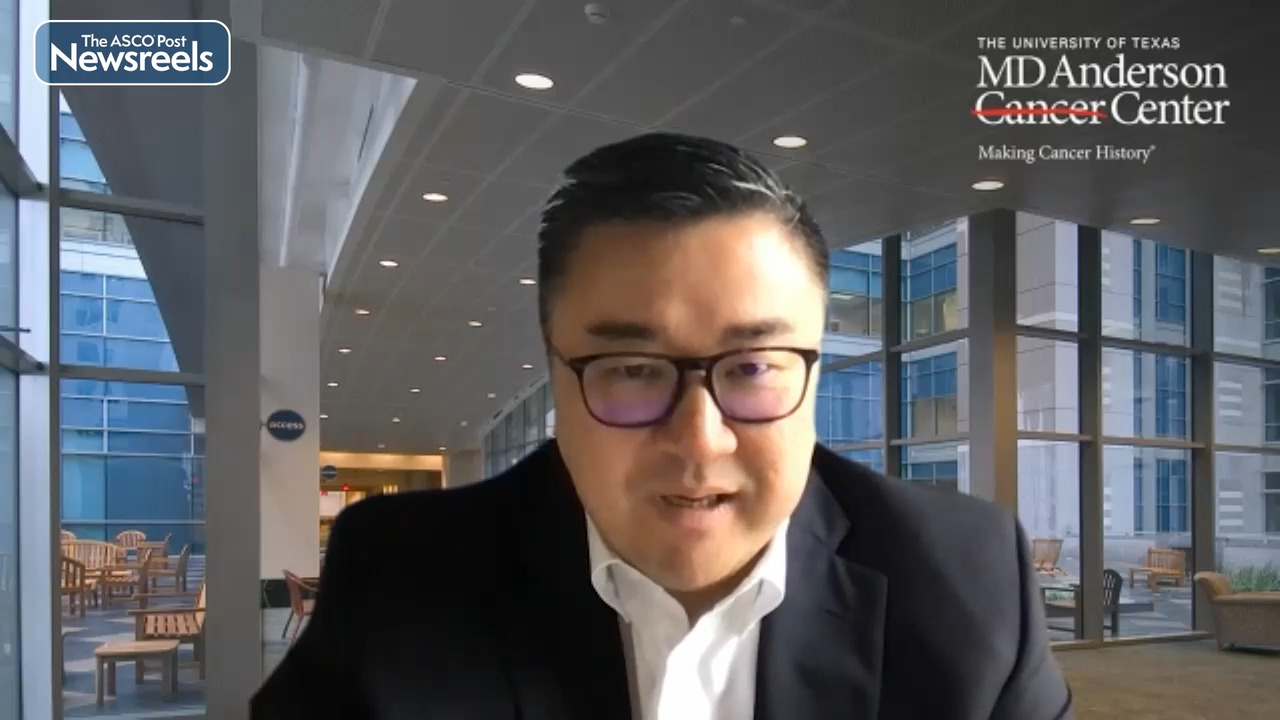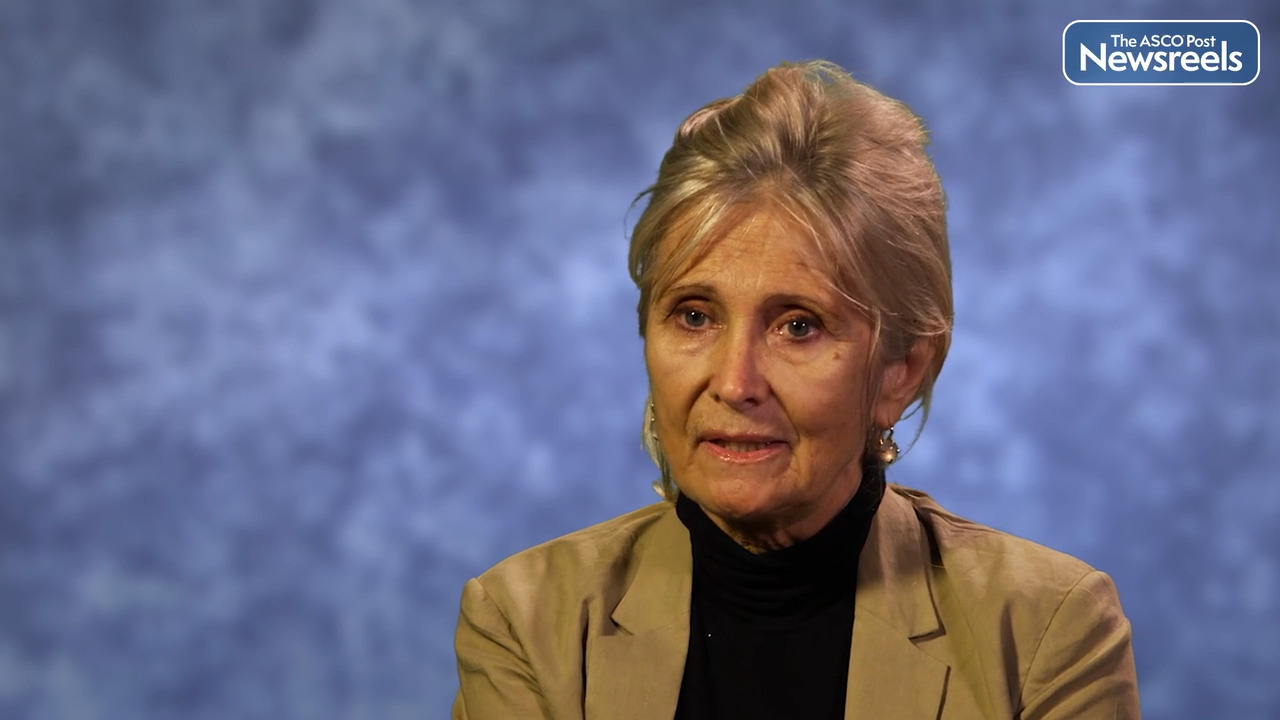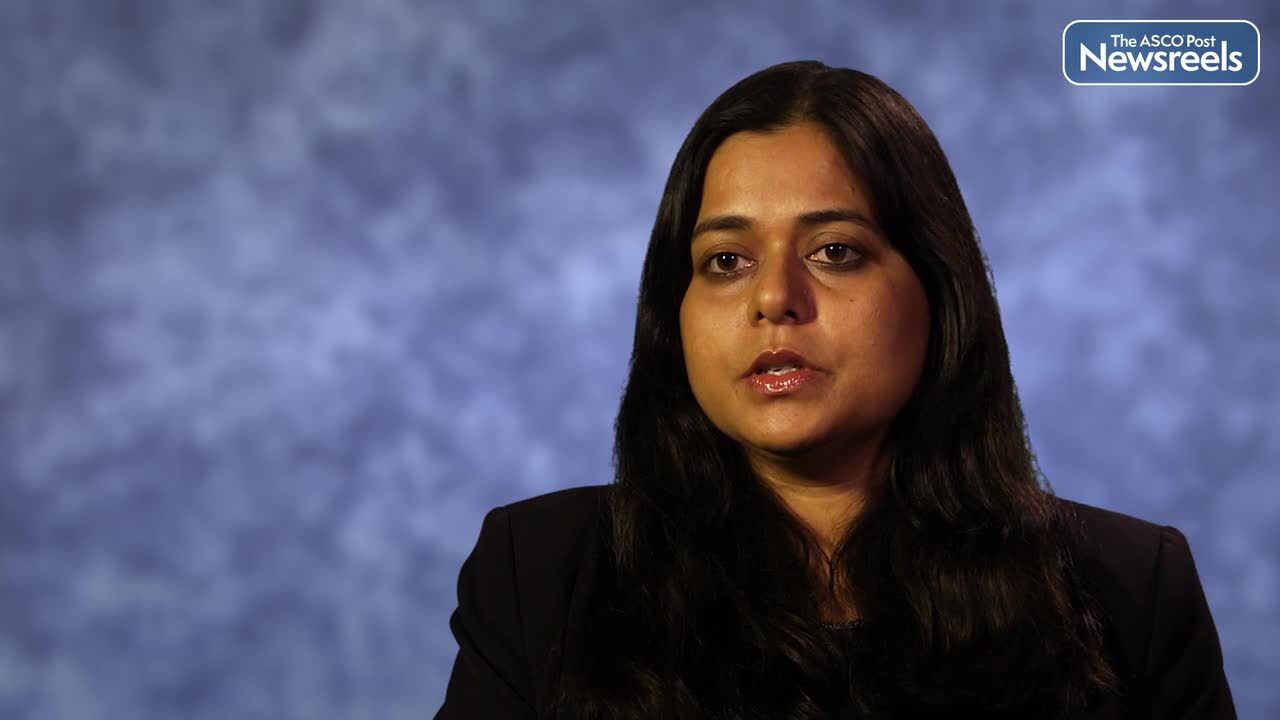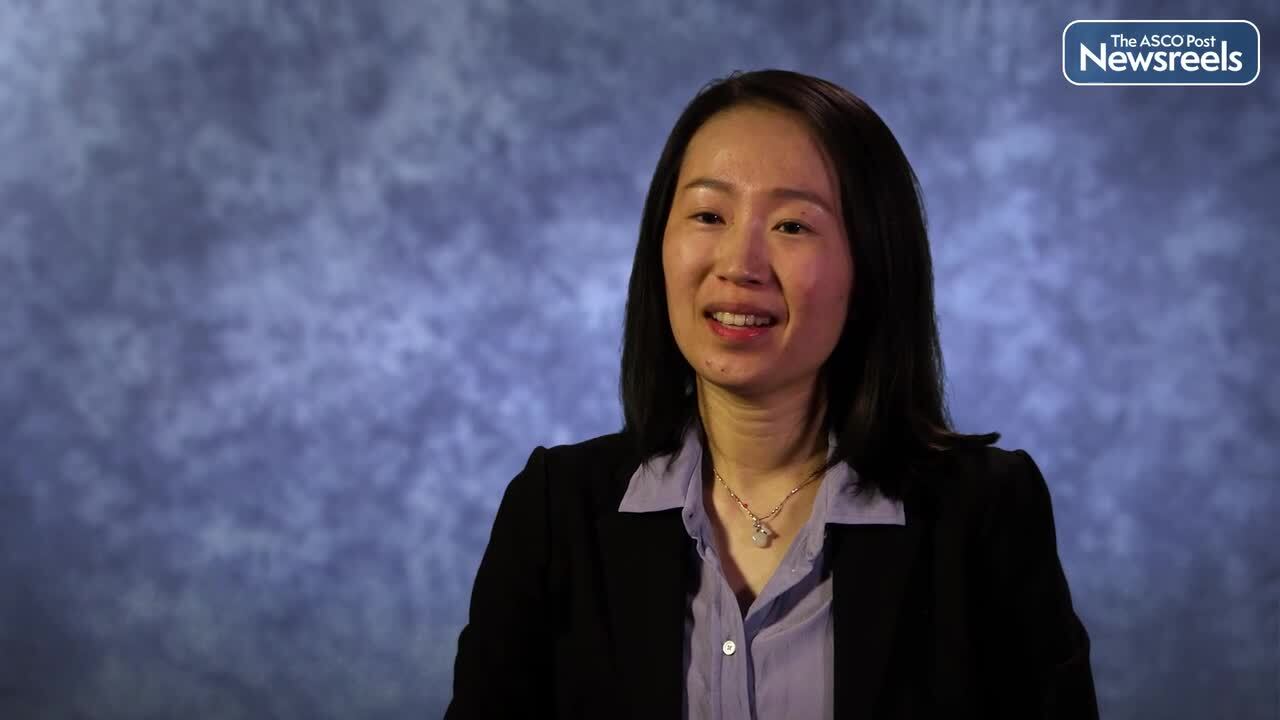David A. Barbie, MD, on Mesothelioma: Activating the STING Pathway May Promote Antitumor Immunity
AACR Annual Meeting 2022
David A. Barbie, MD, of Dana-Farber Cancer Institute, discusses his laboratory’s studies, showing that malignant pleural mesothelioma, an inflamed cancer type with marginal response to immune checkpoint blockade, demonstrated high tumor cell STING expression and response to STING agonists in combination with natural killer cell therapies ex vivo. STING is the tumor cell stimulator of interferon genes (Abstract 4168).
The ASCO Post Staff
Benoit You, MD, PhD, of the Lyon University Hospital (France), discusses phase I/II safety and efficacy results from the ENDOLA trial that combined olaparib with metronomic cyclophosphamide and metformin in patients with advanced pretreated endometrial cancer. At 10 weeks, the non–disease progression rate was 61.5%, reaching the primary endpoint of the study. Median progression-free survival was 5.1 months. Research on biomarkers of efficacy is ongoing (Abstract CT005).
The ASCO Post Staff
Timothy A. Yap, MBBS, PhD, of The University of Texas MD Anderson Cancer Center, discusses results from a phase Ib expansion trial of the safety and efficacy of the oral ataxia telangiectasia and Rad3-related (ATR) inhibitor elimusertib in advanced solid tumors with DNA damage response defects. Elimusertib is a selective inhibitor of ATR, a key regulator of responses to DNA damage and replication stress, with antitumor activity in preclinical models of various solid tumors and lymphoma (Abstract CT006).
The ASCO Post Staff
Silvia C. Formenti, MD, of Weill Cornell Medicine, discusses research on the best way to integrate radiotherapy with immune modifiers, which might require changes in standard radiation oncology practices. Variables such as the type of treatment fields, the inclusion of draining nodal stations, the degree of exposure of circulating immune cells, the type of dose fractionation, and the timing of radiotherapy during immune checkpoint blockade all can affect the success of immunoradiotherapy combinations (Abstract SY43).
The ASCO Post Staff
Meenakshi Anurag, PhD, of Baylor College of Medicine, discusses results from the ALTERNATE trial, which showed the combination of anastrozole plus fulvestrant was superior to either drug alone in inhibiting tumor proliferation in postmenopausal women with early-stage luminal B breast cancer (Abstract CT026).
The ASCO Post Staff
Yaqi Zhao, MSc, of St. Jude Children’s Research Hospital, discusses findings from the phase III INO-VATE trial, which showed that inotuzumab ozogamicin reduced the signs and symptoms of acute lymphoblastic leukemia associated with a variety of gene and chromosome changes. Future studies may confirm which patients are more likely to benefit from this agent (Abstract CT027).
